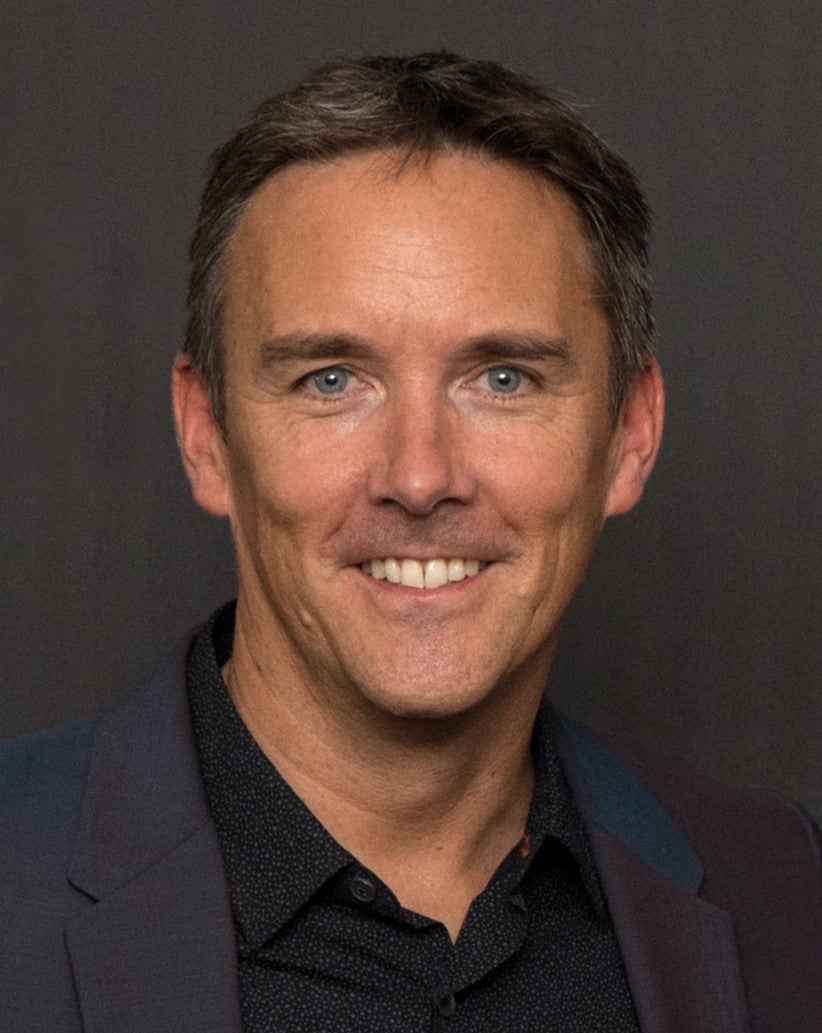KINGSTON, R.I. – Nov. 5, 2021 – Richard Vevers, founder and chief executive officer of The Ocean Agency and a pioneer in marine conservation, will present the University of Rhode Island College of Business’ 2021 Vangermeersch Endowed Lecture on Monday, Nov. 8.
The lecture, which is free and open to the public, will be held at 4 p.m. in the Hope Room of the Robert J. Higgins Welcome Center, 45 Upper College Road, on the Kingston Campus. To register, go to the event’s website.
Vevers’ presentation, “The Business of Saving the Ocean,” will focus on his professional journey from a decade in the advertising industry to founding an international nonprofit organization that is a leader in the fight to protect the world’s oceans.
Vevers launched The Ocean Agency in Sydney, Australia, in 2010 with a mission to accelerate ocean science and conservation, using his background in advertising and a business approach. In just over a decade, The Ocean Agency, now based at URI’s Narragansett Bay Campus, has done landmark work in ocean and reef conservation.
“Ocean conservation isn’t working,” Vevers said. “The issues are growing exponentially and conservation efforts are resulting in very little meaningful impact. One of the biggest opportunities we have to turn the situation around is to apply business thinking methodology to tackle issues at the scale and speed required. I will explain how we have proven this with our work, how we have inspired powerful brands to get involved, and how it has helped accelerate ocean science and conservation.”
After working for 10 years in advertising in London, Vevers, on the spur of the moment, decided he needed to do something more meaningful. Passionate about underwater photography and art, he opened a studio and gallery in Bondi Beach in Sydney.
“I started working with ocean conservation charities in the area and discovered there were so many issues happening in the ocean that I was completely unaware about and there was very little support for ocean conservation,” he said. “I realized this was largely an advertising issue so I set up The Ocean Agency to see if I could use my advertising and business skills to make an impact.”
In 2012, The Ocean Agency started its mission by collaborating with Google to take its popular Streetview feature underwater, using a 360-degree camera invented by Vevers. From 2013 to 2016, the Seaview survey collaborated with the University of Queensland to explore 1,000 kilometers of coral reef in 28 countries, taking more than a million images.
“The idea was to give the 99.9% of people who don’t dive access to explore the ocean virtually,” he said. “People don’t care about issues that are out of sight and out of mind. More people went virtually diving in the first week of the project than have ever been diving in person thanks to the partnership with Google.”
Through his work, Vevers has focused on the plight of coral reefs, which are being killed off by underwater heat waves caused by climate change.
“Coral reefs are the most biodiverse ecosystem on the planet but they are also the most vulnerable to climate change,” he said. “About 20 years ago, we hit a tipping point for coral reefs and we started getting underwater heat waves causing global die-off events.”
Starting in 2014, the agency documented a global coral reef bleaching event, which was caused by an underwater heat wave. Vevers said it destroyed 50% of the corals on the Great Barrier Reef, as well as damage to other reef systems. The work was chronicled in a 2017 Netflix documentary, “Chasing Coral,” which won an Emmy.
The Ocean Agency also began the 50 Reefs project, developing the first global plan to save coral reefs by supporting conservation efforts where they would be most effective. Working with leading scientists, the project identified the 50 reefs least vulnerable to climate change that would have the greatest potential to survive and reseed other reefs.
“We used the algorithm normally used to pick business share portfolios and applied it to picking ‘optimal conservation investments,’” he said. “The ground-breaking study led to one of the largest philanthropic donations to save coral reefs – $86 million – and is used to select sites by the Global Coral Reef Fund, which is the only global fund dedicated to saving coral reefs.”
Currently, The Ocean Agency is working on the United Nations Ocean Decade, teaming with Adobe; the U.N. Educational, Scientific, and Cultural Organization; and the U.N. Environment Programme.
It is also collaborating with URI’s Diving Research and Safety Program to design and develop a cutting-edge, three-dimensional camera – Hammerhead – that is expected to be ready next year. Designed for shallow water surveying of marine environments, the camera can help researchers who are looking to discover ways to support healthier oceans by analyzing 3D images of the seafloor and fish populations.
“We could have based our headquarters anywhere in the U.S.,” said Vevers of the company’s relocation. “But we fell in love with Rhode Island and we wanted a scientific partner like the one we had in Australia with the University of Queensland. Being based in the Ocean Technology Centre on the Bay Campus is perfect for us.”
The Vangermeersch Endowed Lecture was established in 2008 with a gift from URI College of Business alumnus Deborah Ciolfi ’80 in honor of her former accounting professor, Richard Vangermeersch, who retired in 2004 after 34 years of teaching. The lecture series features prominent role models from the business community to interest and inspire our students.

